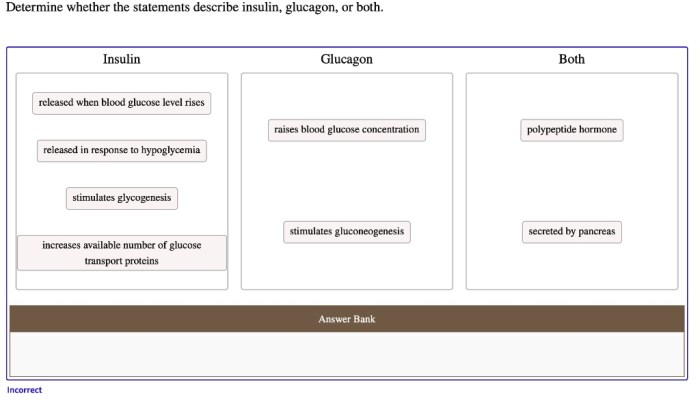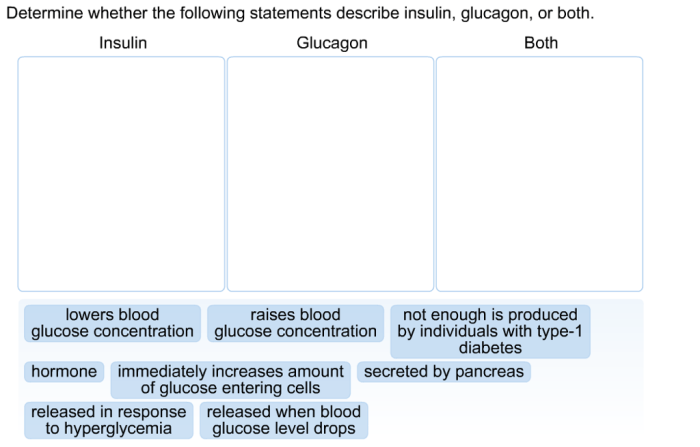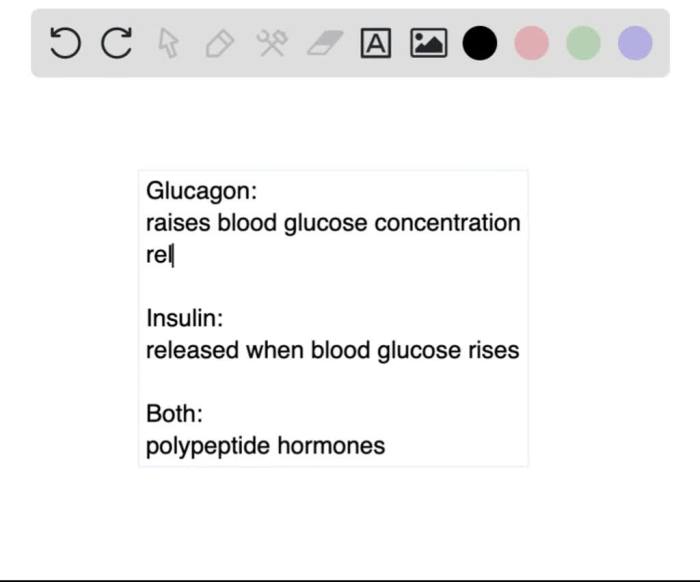Delving into the intricate realm of hormone physiology, this discourse examines the critical question: determine whether the statements describe insulin glucagon or both. By exploring the distinct characteristics, physiological roles, and regulatory mechanisms of insulin and glucagon, we unravel their profound impact on glucose homeostasis and the clinical implications of their dysregulation.
Insulin, a peptide hormone secreted by the pancreas, plays a pivotal role in glucose metabolism, facilitating glucose uptake, storage, and utilization. Glucagon, on the other hand, is a polypeptide hormone that counteracts insulin’s actions, stimulating glucose release from the liver.
Understanding the interplay between these hormones is crucial for comprehending glucose regulation and its associated disorders.
Insulin and Glucagon: Hormone Characteristics

Insulin and glucagon are two essential hormones involved in glucose homeostasis. Insulin is secreted by the beta cells of the pancreas in response to elevated blood glucose levels, while glucagon is secreted by the alpha cells of the pancreas in response to low blood glucose levels.
Insulin is a polypeptide hormone composed of two polypeptide chains linked by disulfide bonds. Glucagon is a single-chain polypeptide hormone. Both hormones are synthesized as preprohormones that are cleaved to form the mature hormones.
Insulin
- Secreted by beta cells of the pancreas
- Target cells: liver, muscle, and adipose tissue
- Primary function: promotes glucose uptake and utilization, inhibits glucose production
Glucagon, Determine whether the statements describe insulin glucagon or both
- Secreted by alpha cells of the pancreas
- Target cells: liver
- Primary function: stimulates glucose release from the liver
Essential Questionnaire: Determine Whether The Statements Describe Insulin Glucagon Or Both
What is the primary function of insulin?
Insulin facilitates glucose uptake, storage, and utilization, promoting glucose entry into cells and its conversion into glycogen for storage.
How does glucagon regulate blood glucose levels?
Glucagon stimulates the breakdown of glycogen into glucose in the liver, releasing glucose into the bloodstream to elevate blood glucose levels.
What are the clinical manifestations of insulin deficiency?
Insulin deficiency, as seen in type 1 diabetes mellitus, can lead to hyperglycemia, increased thirst and urination, weight loss, and fatigue.

